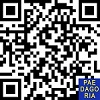Deep Learning for Gender-Sensitive Pedagogy in High School Sociology: Opportunities and Challenges
Abstract
Keywords
Full Text:
PDFReferences
Abdurrohman, A., Pageh, I., Mudana, I., Margi, I., & Nitiasih, P. (2024). The mainstreaming of egalitarian pedagogy in sociology learning process. Kne Social Sciences. https://doi.org/10.18502/kss.v9i2.14845
Abraha, M., Dagnew, A., & Seifu, A. (2019). Gender responsive pedagogy: practices, challenges & opportunities - a case of secondary schools of north wollo zone, ethiopia. Journal of Education Society and Behavioural Science, 1-17. https://doi.org/10.9734/jesbs/2019/v30i330128
Agarwal, P. and Vij, A. (2024). Assessing the challenges and opportunities of artificial intelligence in indian education. International Journal for Global Academic & Scientific Research, 3(1), 36-44. https://doi.org/10.55938/ijgasr.v3i1.71
Akgün, F., Çuhadar, C., & Leymun, Ş. (2023). A critical view to educational technologies in the context of social inequalities. QIETP, 1(1), 3-28. https://doi.org/10.59455/qietp.1
Akintayo, O., Eden, C., Ayeni, O., & Onyebuchi, N. (2024). Integrating ai with emotional and social learning in primary education: developing a holistic adaptive learning ecosystem. Computer Science & It Research Journal, 5(5), 1076-1089. https://doi.org/10.51594/csitrj.v5i5.1116
Alrayes, A., Henari, T., & Ahmed, D. (2024). Chatgpt in education – understanding the bahraini academics perspective. The Electronic Journal of E-Learning, 22(2), 112-134. https://doi.org/10.34190/ejel.22.2.3250
Ananga, E. (2021). Gender responsive pedagogy for teaching and learning: the practice in ghana’s initial teacher education programme. Creative Education, 12(04), 848-864. https://doi.org/10.4236/ce.2021.124061
Antypas, G. (2022). Education in universities - teacher training as a quality factor. European Journal of Education Studies, 9(10). https://doi.org/10.46827/ejes.v9i10.4502
Aragonés-González, M., Limiñana, A., & Gil‐González, D. (2020). Coeducation and gender equality in education systems: a scoping review. Children and Youth Services Review, 111, 104837. https://doi.org/10.1016/j.childyouth.2020.104837
Azizah, N. (2023). Gender equality challenges and raising awareness in the patriarchal cultural in indonesia. Journal of Humanities and Social Sciences Studies, 5(1), 47-52. https://doi.org/10.32996/jhsss.2023.5.1.7
Baran, B., SİYEZ, D., & Kaptanoğlu, Ş. (2018). Bilgisayar ve öğretim teknolojileri toplumsal cinsiyet eşitliği algı (böte-tce algı) ölçeğinin geliştirilmesi. Mersin Üniversitesi Eğitim Fakültesi Dergisi, 14(1), 137-150. https://doi.org/10.17860/mersinefd.316164
Baskara, F. (2024). Chatgpt and personalised learning: reshaping pedagogical approaches in the vuca age. Journal Educative Journal of Educational Studies, 8(2), 167. https://doi.org/10.30983/educative.v8i2.7620
Baskara, R. (2023). Personalised learning with ai: implications for ignatian pedagogy. International Journal of Educational Best Practices, 7(1), 1. https://doi.org/10.31258/ijebp.v7n1.p1-16
Cagang, A., Sinang, A., Butlig, S., & Española, E. (2023). Gender and development awareness towards gender-sensitive pedagogical practices of pre-service teachers: basis for a university gad program. Asian Journal of Education and Social Studies, 49(3), 266-280. https://doi.org/10.9734/ajess/2023/v49i31153
Celine, S., Dominic, M., Fransis, F., & Devi, M. (2022). Learning content classification and mapping content to synonymous learners based on 2022 augmented verb list of marzano and kendall taxonomy. International Journal of Advanced Computer Science and Applications, 13(8). https://doi.org/10.14569/ijacsa.2022.0130845
Choudhary, T. (2024). Political bias in ai-language models: a comparative analysis of chatgpt-4, perplexity, google gemini, and claude.. https://doi.org/10.20944/preprints202407.1274.v1
Desyantari, N., Yasa, I., Wirawan, I., Sitompul, L., & Nur, I. (2023). Technological adaptation trends for sociology teachers in online learning during covid-19 pandemic. Media Komunikasi Fpips, 22(1), 01-06. https://doi.org/10.23887/mkfis.v22i1.43591
Falk, A. and Hermle, J. (2018). Relationship of gender differences in preferences to economic development and gender equality. Science, 362(6412). https://doi.org/10.1126/science.aas9899
Glas, S., Spierings, N., & Scheepers, P. (2018). Re-understanding religion and support for gender equality in arab countries. Gender & Society, 32(5), 686-712. https://doi.org/10.1177/0891243218783670
Gupta, P., Sreelatha, C., Latha, A., Raj, S., & Singh, A. (2024). Navigating the future of education: the impact of artificial intelligence on teacher-student dynamics. EATP, 6006-6013. https://doi.org/10.53555/kuey.v30i4.2332
Gökoğlu, S. (2024). Challenges and limitations of generative ai in education., 158-181. https://doi.org/10.4018/979-8-3693-1351-0.ch008
Göçen, A. and AYDEMİR, F. (2020). Artificial intelligence in education and schools. Research on Education and Media, 12(1), 13-21. https://doi.org/10.2478/rem-2020-0003
Huang, Y., Richter, E., Kleickmann, T., & Richter, D. (2022). Comparing video and virtual reality as tools for fostering interest and self‐efficacy in classroom management: results of a pre‐registered experiment. British Journal of Educational Technology, 54(2), 467-488. https://doi.org/10.1111/bjet.13254
Jian, M. (2023). Personalized learning through ai. AEI, 5(1), 16-19. https://doi.org/10.54254/2977-3903/5/2023039
Junnan, L., Jiang, X., Wang, Y., & Yuan, Z. (2023). Problems and countermeasures of gender equality education in junior middle schools. Journal of Education Humanities and Social Sciences, 8, 882-888. https://doi.org/10.54097/ehss.v8i.4376
Kansal, R., Bawa, A., Bansal, A., Trehan, S., Goyal, K., Goyal, N., … & Malhotra, K. (2022). Differences in knowledge and perspectives on the usage of artificial intelligence among doctors and medical students of a developing country: a cross-sectional study. Cureus. https://doi.org/10.7759/cureus.21434
Kim, J., Lee, H., & Cho, Y. (2022). Learning design to support student-ai collaboration: perspectives of leading teachers for ai in education. Education and Information Technologies, 27(5), 6069-6104. https://doi.org/10.1007/s10639-021-10831-6
Koutsouris, G., Bremner, N., & Stentiford, L. (2023). Do we have to rethink inclusive pedagogies for secondary schools? a critical systematic review of the international literature. British Educational Research Journal, 50(1), 260-286. https://doi.org/10.1002/berj.3926
Li, W. (2024). The influence of artificial intelligence on the education system. Lecture Notes in Education Psychology and Public Media, 65(1), 137-142. https://doi.org/10.54254/2753-7048/65/20240158
Miralles-Cardona, C., Chiner, E., & Moltó, M. (2021). Educating prospective teachers for a sustainable gender equality practice: survey design and validation of a self-efficacy scale. International Journal of Sustainability in Higher Education, 23(2), 379-403. https://doi.org/10.1108/ijshe-06-2020-0204
Moges, B. (2019). One-hand clapping: gender equality and its challenges in pastoralist secondary education in afar region: a quality concern. Educational Research and Reviews, 14(6), 217-227. https://doi.org/10.5897/err2018.3653
Murtaza, M., Ahmed, Y., Shamsi, J., Sherwani, F., & Usman, M. (2022). Ai-based personalized e-learning systems: issues, challenges, and solutions. Ieee Access, 10, 81323-81342. https://doi.org/10.1109/access.2022.3193938
Sapci, A. and Sapci, H. (2020). Artificial intelligence education and tools for medical and health informatics students: systematic review. Jmir Medical Education, 6(1), e19285. https://doi.org/10.2196/19285
Sari, R. and Korucu, A. (2023). Perception of gender equality of teacher candidates and the relationship between technology use levels. Bilgi Ve İletişim Teknolojileri Dergisi, 5(1), 79-95. https://doi.org/10.53694/bited.1280595
Seo, K., Tang, J., Roll, I., Fels, S., & Yoon, D. (2021). The impact of artificial intelligence on learner–instructor interaction in online learning. International Journal of Educational Technology in Higher Education, 18(1). https://doi.org/10.1186/s41239-021-00292-9
Sukhera, J., Kennedy, E., Panza, M., Rodger, S., & Watling, C. (2024). Exploring diversity, equity, and inclusion–related pedagogy across different professions. Academic Medicine, 99(12), 1365-1373. https://doi.org/10.1097/acm.0000000000005741
Thabiti, T., Mwandilawa, B., & Basela, J. (2024). Examining the influence of gender-responsive pedagogies on students’ academic performance in secondary schools in tanzania: the case of mafia, district. JMPIE, 1(1), 71-85. https://doi.org/10.58548/2024.jmpie11.7185
Torres, J., García, G., Navas-Parejo, M., & Costa, R. (2020). The development of information literacy in early childhood education teachers: a study from the perspective of the education center's character. Journal of Technology and Science Education, 10(1), 47. https://doi.org/10.3926/jotse.728
Truskavetska, I., Кириєнко, О., Buslenko, L., Hrudynin, B., & Hurska, O. (2024). The role of virtual reality in improving the quality of professional training of natural science teachers. Educação & Formação, 9, e13866. https://doi.org/10.25053/redufor.v9.e13866
Tsuma, D. (2023). Assessing the contribution of women-led ngos to gender equality and empowerment in kenya: challenges, successes, and future prospects. Journal of Sociology Psychology & Religious Studies, 5(2), 143-159. https://doi.org/10.53819/81018102t4238
Türkkan, B., Namlı, N., Karaduman, B., & Karakuş, M. (2024). Interdisciplinary gender equality education integrating science, mathematics and information technologies and software courses: a sample from türkiye. Kuramsal Eğitimbilim, 17(1), 169-201. https://doi.org/10.30831/akukeg.1312055
Vaganova, O. and Korostelev, A. (2021). Study of the motivative component of technological competence of the teacher of professional training. Scientific Vector of the Balkans, 5(11). https://doi.org/10.34671/sch.svb.2021.0501.0003
Vaughn, M. and Leon, D. (2021). The personal is political art: using digital storytelling to teach sociology of sexualities. Teaching Sociology, 49(3), 245-255. https://doi.org/10.1177/0092055x211022459
Yim, I. and Wegerif, R. (2024). Teachers' perceptions, attitudes, and acceptance of artificial intelligence (ai) educational learning tools: an exploratory study on ai literacy for young students. Future in Educational Research, 2(4), 318-345. https://doi.org/10.1002/fer3.65
Zhang, H., Lee, I., Ali, S., DiPaola, D., Cheng, Y., & Breazeal, C. (2022). Integrating ethics and career futures with technical learning to promote ai literacy for middle school students: an exploratory study. International Journal of Artificial Intelligence in Education, 33(2), 290-324. https://doi.org/10.1007/s40593-022-00293-3
Zhang, P. (2024). Design and implementation of english-chinese translation teaching platform based on deep learning. jes, 20(3s), 1746-1755. https://doi.org/10.52783/jes.1714
ŞANLI, B. and Karakuş, F. (2023). Toplumsal ci̇nsi̇yet eşi̇tli̇ği̇ eği̇ti̇mi̇ i̇le i̇lgi̇li̇ ni̇tel bulgularin meta-özeti̇. The Journal of Academic Social Science Studies, Year: 16 - Number: 94(Year: 16 - Number: 94), 39-54. https://doi.org/10.29228/jasss.68340
DOI: https://doi.org/10.31764/paedagoria.v16i3.30350
Refbacks
- There are currently no refbacks.
Copyright (c) 2025 Fritz Hotman Syahmahita Damanik

This work is licensed under a Creative Commons Attribution-ShareAlike 4.0 International License.
Paedagoria : Jurnal Kajian, Penelitian dan Pengembangan Kependidikan
Fakultas Keguruan & Ilmu Pendidikan | Universitas Muhammadiyah Mataram.
_______________________________________________
 | Paedagoria : Jurnal Kajian, Penelitian dan Pengembangan Kependidikan |
______________________________________________
CURRENT INDEXING:
EDITORIAL OFFICE:


















